Research in Malaita, July 2022
Report by Eddie Mae and Chris Hapert Ha’arabe
Malaita Province is the highest populated province in the Solomon Islands. The Malaitans like other provinces in the Solomon Islands thus people are spiritually connected with their ancestors in different forms of worship, like lullaby singings, performing traditional lullaby dancing songs as their ritual sacrificial ceremonies. It is believed Malaita Province had fourteen (14) different dialects (Languages). However, we only managed to visit/discover Langa Langa Lagoon, refer to as people of Wala.
The Malaita team recorded eight lullabies, both in singing and dancing styles. With the new-recorded lullabies, some of them are quite emotional and spiritually rooted. They performed such lullabies as a tradition of worshipping/ honouring/respecting their heroes (Ancestors), whilst in some cases, some of them (especially, Wala) did it during a passing away of their loved ones (Lament). Therefore, some of these people of Langa Langa/Wala still practising the same old fashions like before, but rarely to be found nowadays. If anyone wants to listen to these oral historical lullaby singing and dancing must be contacting or connecting to the people back in the villages.
Recordings
The interviewees the Malaita team had been conducting interviews with are: Mrs Anna Bulugwalu, Mrs Theresia Kewisi, Mr Thardias Angihotele, Mr Brasi Walefai and Mrs Ulao Tahera.
Mrs Bulugwalu and Mrs Kewisi are cousins, thus duo on the first lullaby song called, ‘Fadlialo Laulasi’, which means ‘Booming of Laulasi’ during WWII on August 7th 1942, by the Japanese fighting planes that resulted in the loss of men, women and children.
Mr Thardias Angihotele is the leader of the Aibola Mao Dancers, from Aibola Community. Mr Brasi Walefai and Ulao Tahera were interviewed for the Lana Lana Women’s Cultural Group, the only group still able to do such oral historical lullaby singing and dancing.
The selected three new recordings from Langa Langa Lagoon, Wala are: 1. Fadlialo Laulasi, 2. Mae’au Abu I Laulasi & Mae’au Abu I Rarata, 3. Afai Wala. The recordings are rooted in an oral historic lullaby singing and dancing styles. The Malaita team recommended these cultural groups because they were the only group that still practise such lullaby singing and dancing in the Langa Langa / Wala district.
Fadlialo Laulasi
Recorded 20 June 2022
(5 minutes)
‘Fadlialo Laulasi’ means ‘Booming [bombing] of Laulasi’ in Langa Langa Lagoon/Wala. Sung by Mrs Bulugwalu, age 79, and Mrs Kewisi, age 82.
Rafle Maul Maul ala August 7th 1942
Io oh Japan lofo I nali fadlialo I Laulasi
Mala I amael touwarko tarafolo eh
I oh fafta amael alia suda la amaulgi
I oh lamae fadlialo amael mala amael
Ta wale touwarko I oh ogta’a famael
I oh kwelkwel rasua o lamolmae ko roun amael lo
Ti wal amael e’ahdmae e’ahd mol mae mal maena
Ti wal amael etaflo edoul ke toufal aruna ma edoul ke maemol
Mael kwaimaltai rasua si amael tafsia wal aful amaelgi
Booming of Laulasi
In the early morning of August 7th 1942
You Japanese flew over booming Laulasi
Like we were the ones causing trouble
You destroy us with your powerful weapons
You came booming us like we were your enemies
Some of us woke up but dead
Some of us escaped trying to swim to the mainland
But getting killed by you the Japanese fighting aircraft
Some managed to survive during the killing
Oh so sorry because we missed a lot of our people[Translation]
Lah lah Lah laaah (4x)
Afai I wala li gera faura lo wale baela gera ali lafasi geli ala Nofeba (November)
Ala tolo I wala gera faura lo wale baela gera ala fasi geli ala Nofeba (November)
Ah I o laka mae lo agua fasia tolo eh wala li ala Egilani (England) ka ronowa mae
Ah I o laka mae lo agua fasia tolo eh wala li ala Merika (America) ka ronowa mae
Lah lah lah laaah (4x)
Lah lah Lah laaah (4X)
A dance from Langalanga made them put up their important man
If the island of Langalanga people put up their important man on November
Yah! We will be killed from the islands in Langalanga lagoon if it happens England hears
Yah! We will be killed from the islands in Langalanga lagoon if it happens America hears
Lah Lah lah Laaah (4x)[Translation]
Mae’au Abu I Laulasi & Mae’au Abu I Rarata
Recorded 21 June 2022
(11 minutes 15 seconds)
Performances of two songs. A Lullaby sung by Mrs Anna Bulugwalu & Mrs Theresia Kewisi plus a Lullaby dancing song by Lana Lana women’s group.
Ya ya ya yaaa (4x)
Akalo nuu nuu
Akua nu I bae
Akua tolii bae
O toli Fera Gwaru
Na welaa ila mauri
E faanisi lau
Ya ya ya yaaa (4x, fai me talasi)
Ya ya ya yaaa (4x)
Singing spirit
Singing at the bae
Falling into the bae
At Fera Gwaru
Lucky child, me
Possessed and crying
Ya ya ya yaaa (4x, four times)[Translation]
Ya ya ya yaaa (4x)
Ada I tae lana
E tae la I saela
Kwalu baeli geli
E taesui la
Ya ya ya yaaa (4x)
Rongo aku sulia
Ri la bae lau
E lebesui la
Kita liu la
Ya ya ya yaaa
Ya ya ya yaaa (4x)
Look a loaded canoe
Over-loaded
With many women
Bound for nowhere
Ya ya ya yaa (4x)
They heeded not
My warning call
Surprised they were[Translation]
Historical Recordings
The following cylinders from the Thomas Edge-Partington 1909-1914 British Solomon Islands Protectorate Cylinder Collection (C83) were researched by Eddie Mae and Chris Hapert Ha’arabe. All were made in Malaita.
| British Library shelfmark | Recording title | Performer name | Recording location | Recording date | Content description | Performer description | Recording notes | Languages | Genre | Recordist | Recording length | Recording trip | Description of cylinder | Collection title | Cylinder location | Images of cylinder containers / documentation | Related print publication: | Related print publication: | Related print publication: | Related print publication: | Related print publication: | Related print publication: |
|---|---|---|---|---|---|---|---|---|---|---|---|---|---|---|---|---|---|---|---|---|---|---|
| C83/1510 | Native Song "Gala" by 30 Saltwater Women of Mala. Part 1 | Unidentified (chorus, female) | British Solomon Islands Protectorate | December 1904 – January 1915 | Female vocal group, unaccompanied. | From Langalanga Lagoon, Malaita, Solomon Islands | Cylinder chipped and bandaged, but reasonable quality recording. | Wala | Field recordings | Edge-Partington, Thomas William, 1883–1920 | 2'29" | Thomas Edge-Partington, 1909-1914 | Brown wax cylinder | C83 Thomas Edge-Partington 1909-1914 British Solomon Islands Protectorate Cylinder Collection | British Library | 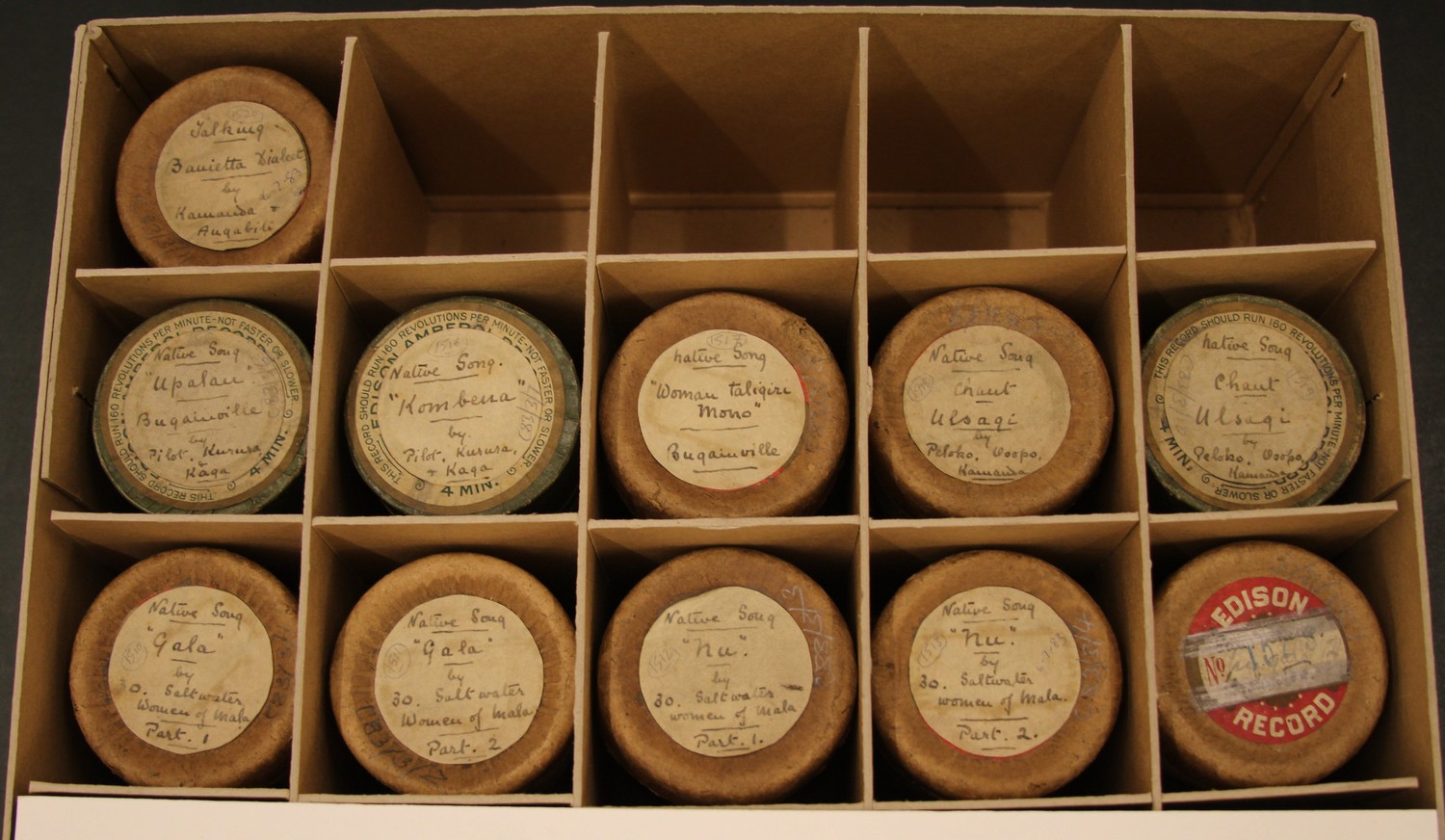 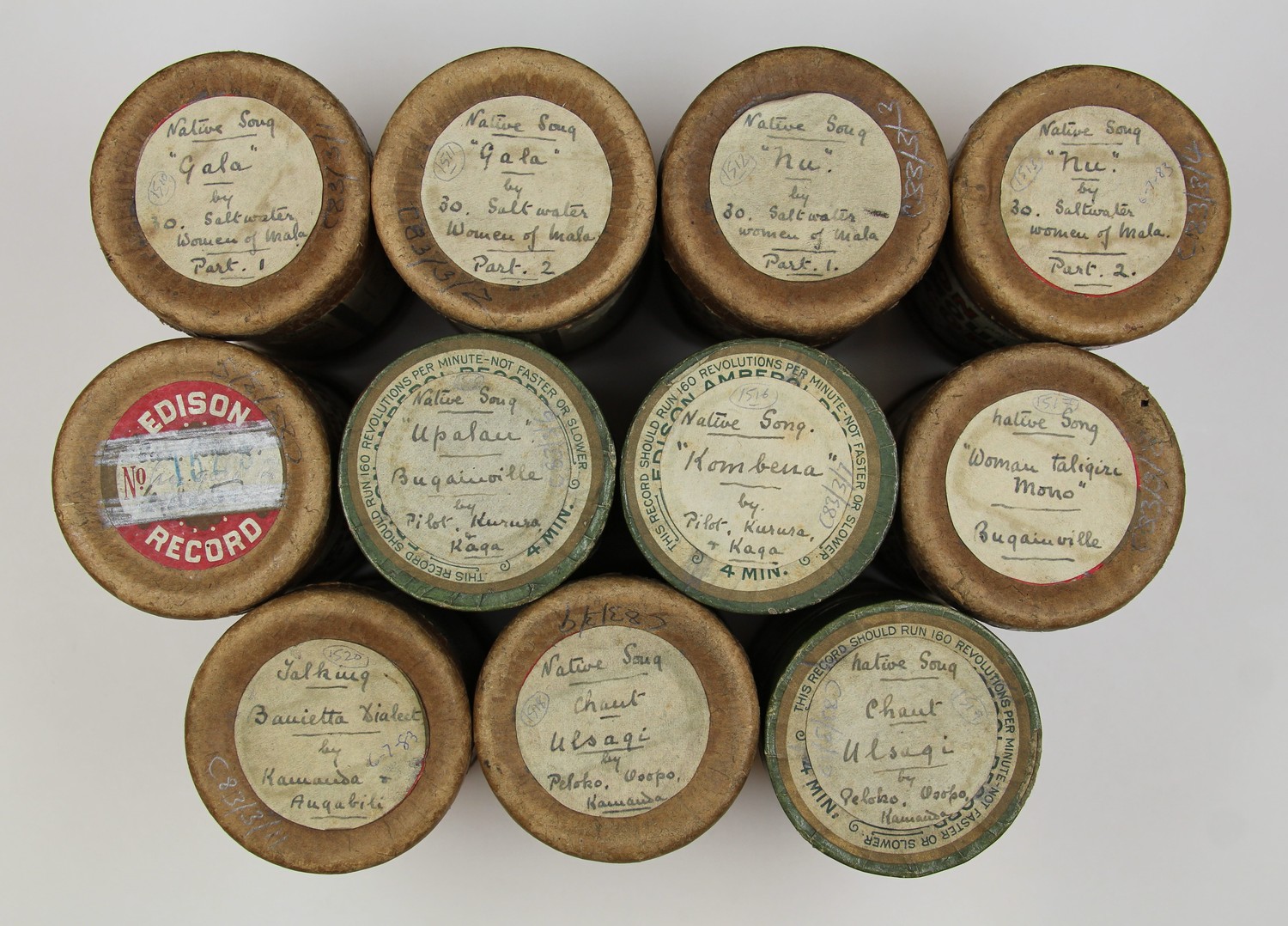 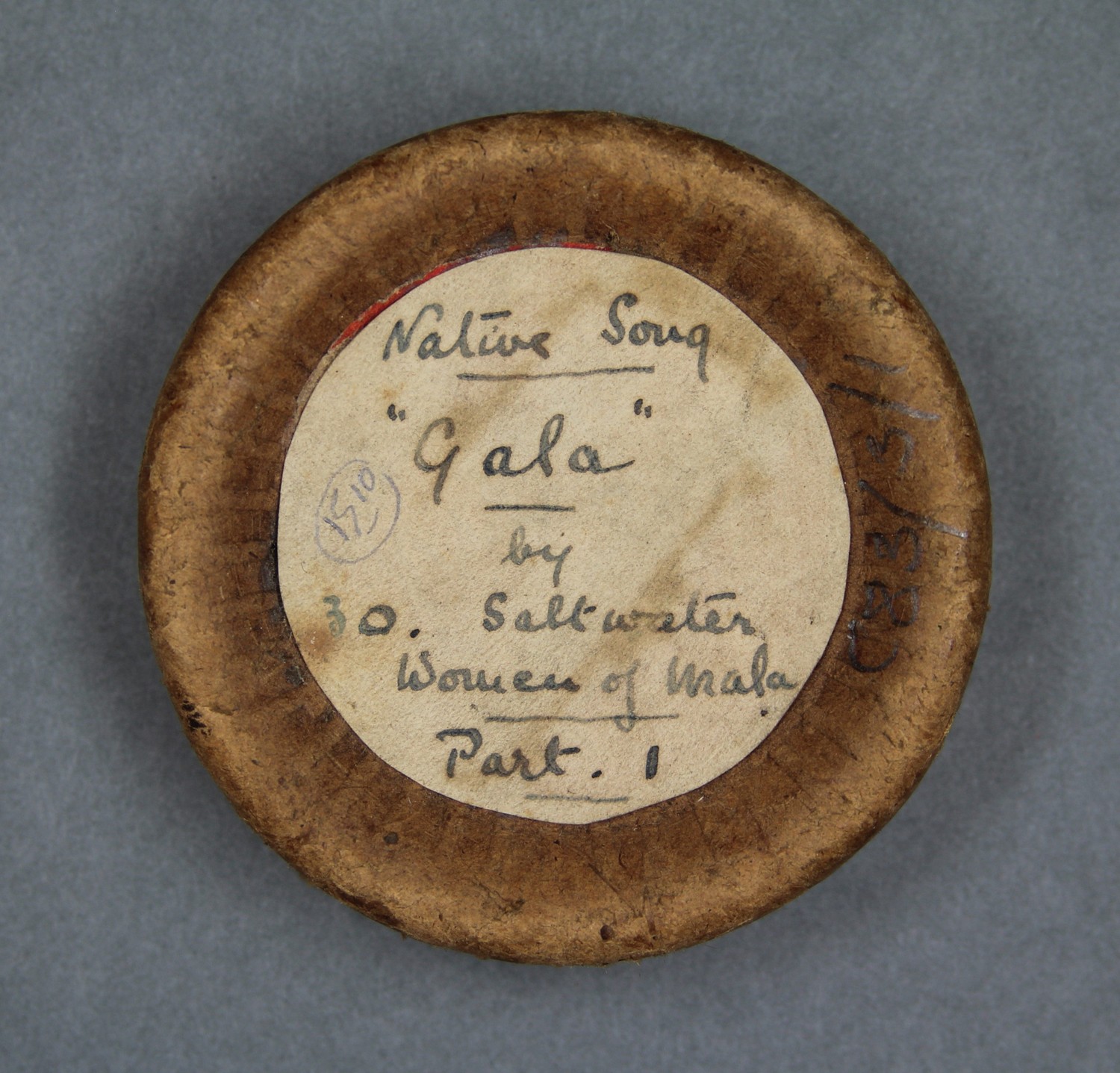 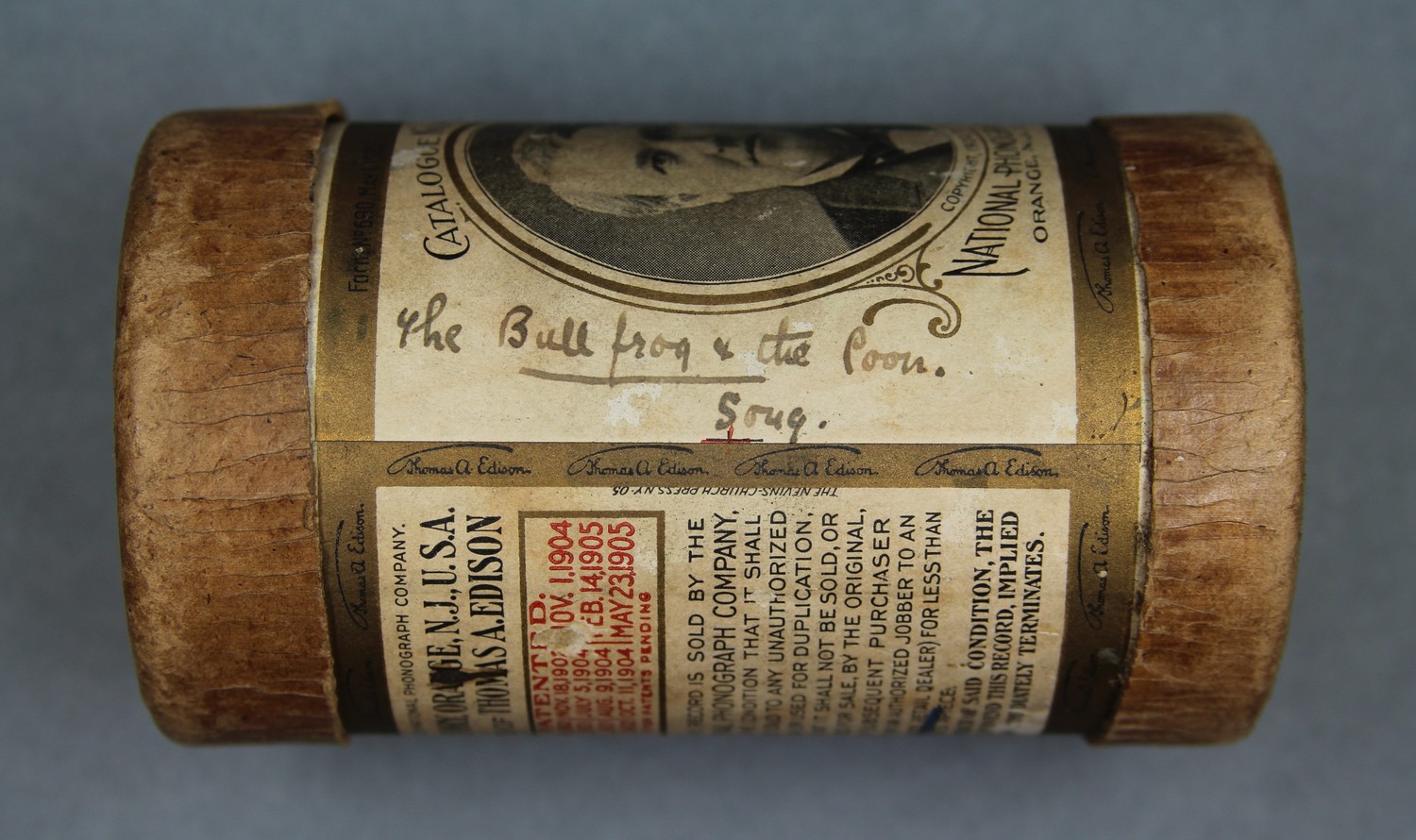 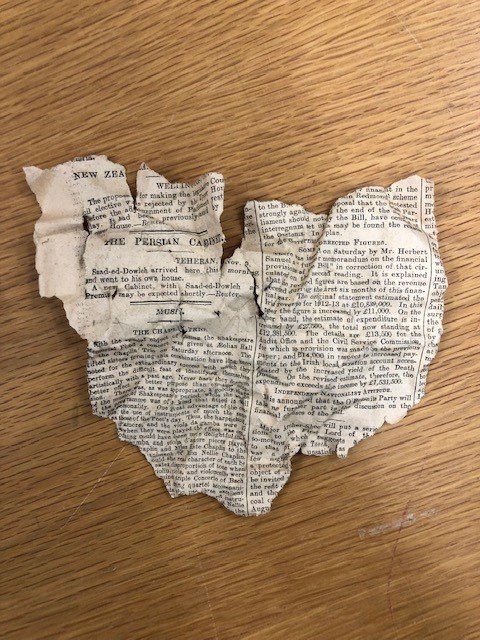  | ||||||
| C83/1511 | Native Song "Gala" by 30 Saltwater Women of Mala. Part 2 | Unidentified (chorus, female) | British Solomon Islands Protectorate | December 1904 – January 1915 | Female vocal group, unaccompanied. | From Langalanga Lagoon, Malaita, Solomon Islands | Wala | Field recordings | Edge-Partington, Thomas William, 1883–1920 | 2'36" | Thomas Edge-Partington, 1909-1914 | Brown wax cylinder | C83 Thomas Edge-Partington 1909-1914 British Solomon Islands Protectorate Cylinder Collection | British Library |   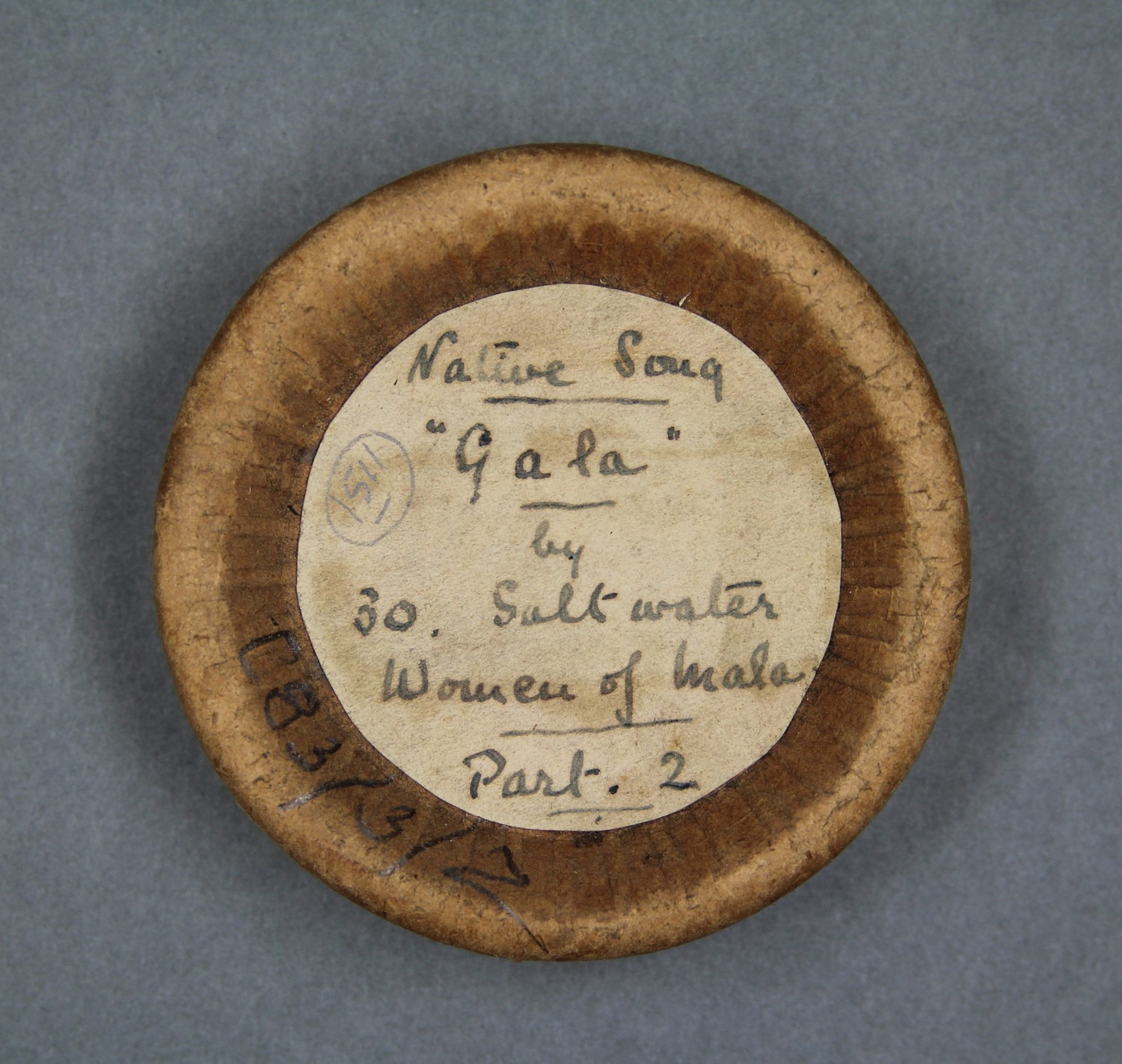    | |||||||
| C83/1512 | Native Song "Nu", by 30 Saltwater women of Mala. Part 1 | Unidentified (chorus, female) | British Solomon Islands Protectorate | December 1904 – January 1915 | Female vocal group, unaccompanied. | From Langalanga Lagoon, Malaita, Solomon Islands | Wala | Field recordings | Edge-Partington, Thomas William, 1883–1920 | 2'35" | Thomas Edge-Partington, 1909-1914 | Brown wax cylinder | C83 Thomas Edge-Partington 1909-1914 British Solomon Islands Protectorate Cylinder Collection | British Library |   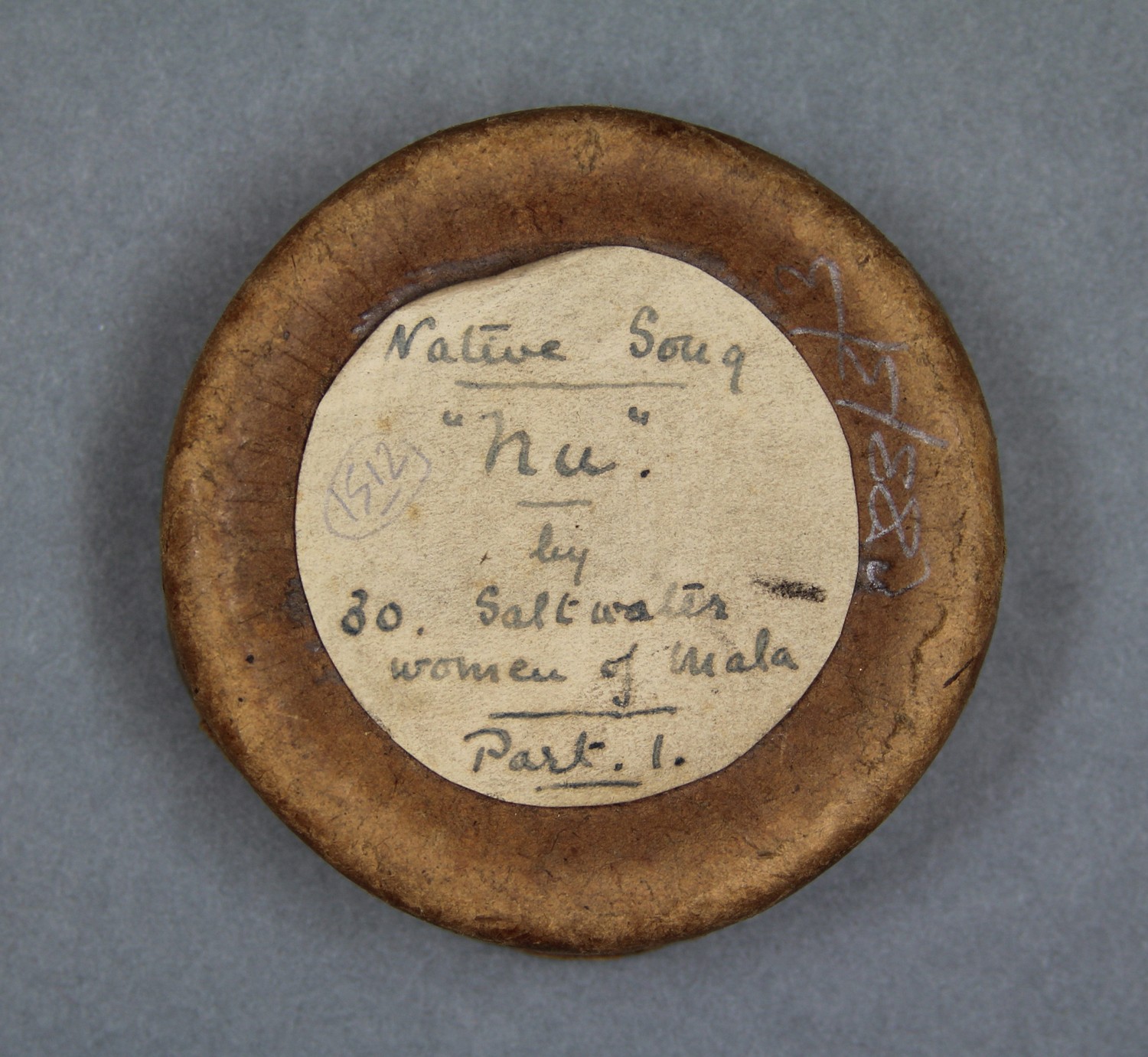    | |||||||
| C83/1513 | Native Song "Nu", by 30 Saltwater women of Mala. Part 2 | Unidentified (chorus, female) | British Solomon Islands Protectorate | December 1904 – January 1915 | Female vocal group, unaccompanied. | From Langalanga Lagoon, Malaita, Solomon Islands | Wala | Field recordings | Edge-Partington, Thomas William, 1883–1920 | 2'35" | Thomas Edge-Partington, 1909-1914 | Brown wax cylinder | C83 Thomas Edge-Partington 1909-1914 British Solomon Islands Protectorate Cylinder Collection | British Library |       | |||||||
| C83/1514 | Nu. Gala (2) | Unidentified (chorus) | British Solomon Islands Protectorate | December 1904 – January 1915 | Vocal group, unaccompanied. | From Langalanga Lagoon, Malaita, Solomon Islands | Reasonable quality recording. | Wala | Field recordings | Edge-Partington, Thomas William, 1883–1920 | 2'35" | Thomas Edge-Partington, 1909-1914 | Brown wax cylinder | C83 Thomas Edge-Partington 1909-1914 British Solomon Islands Protectorate Cylinder Collection | British Library |   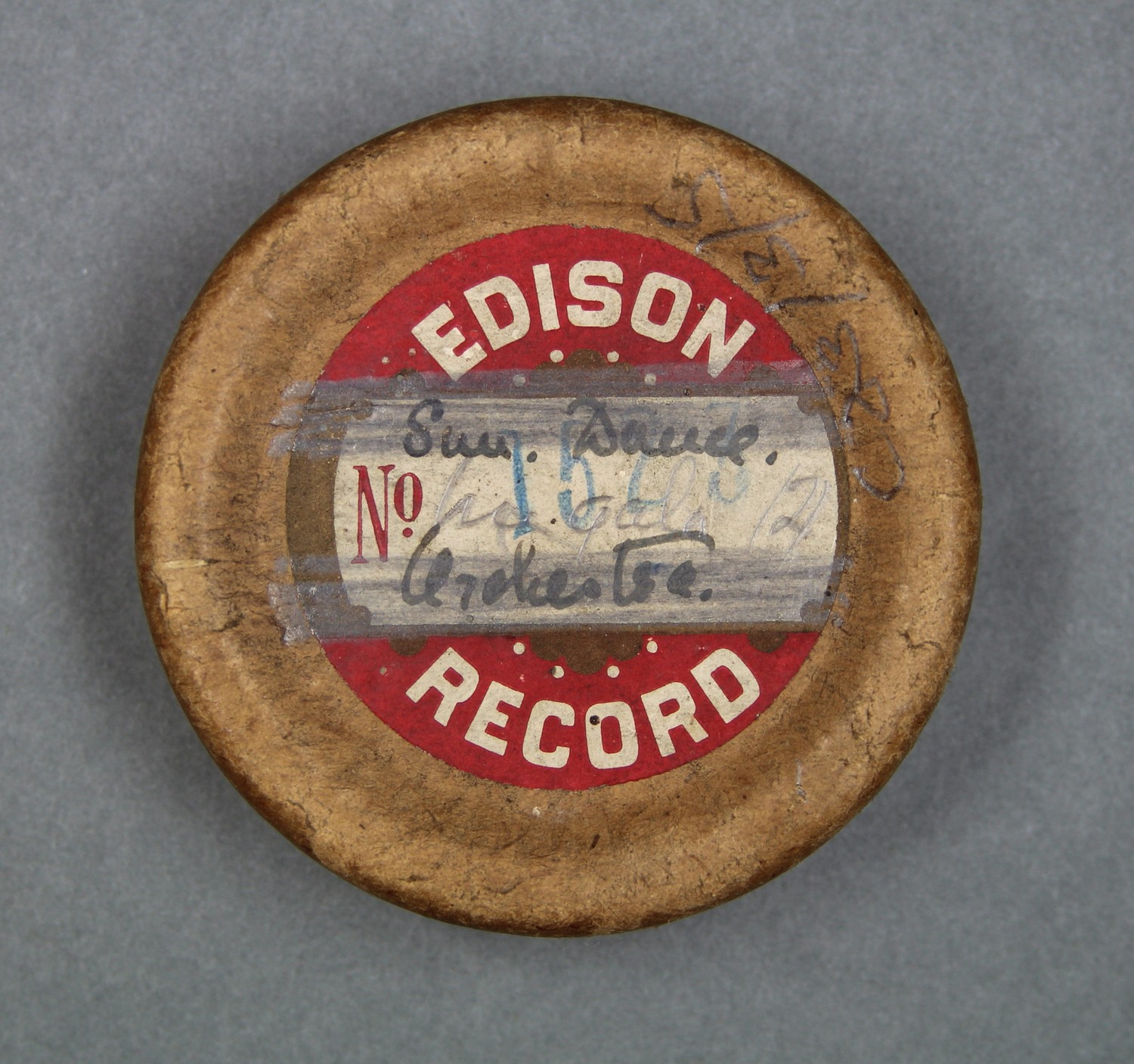    |







